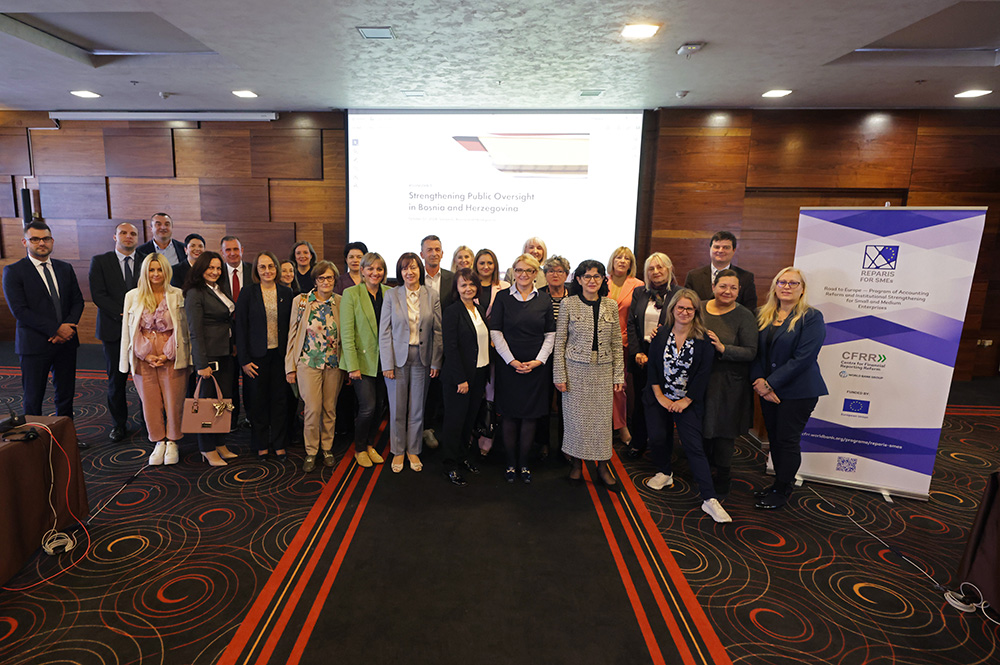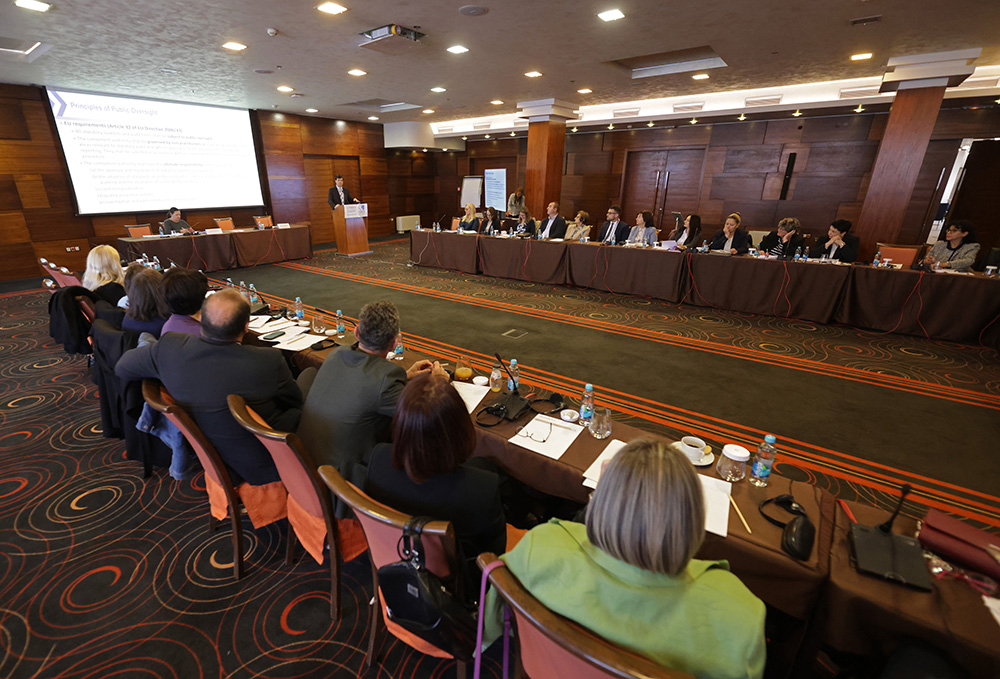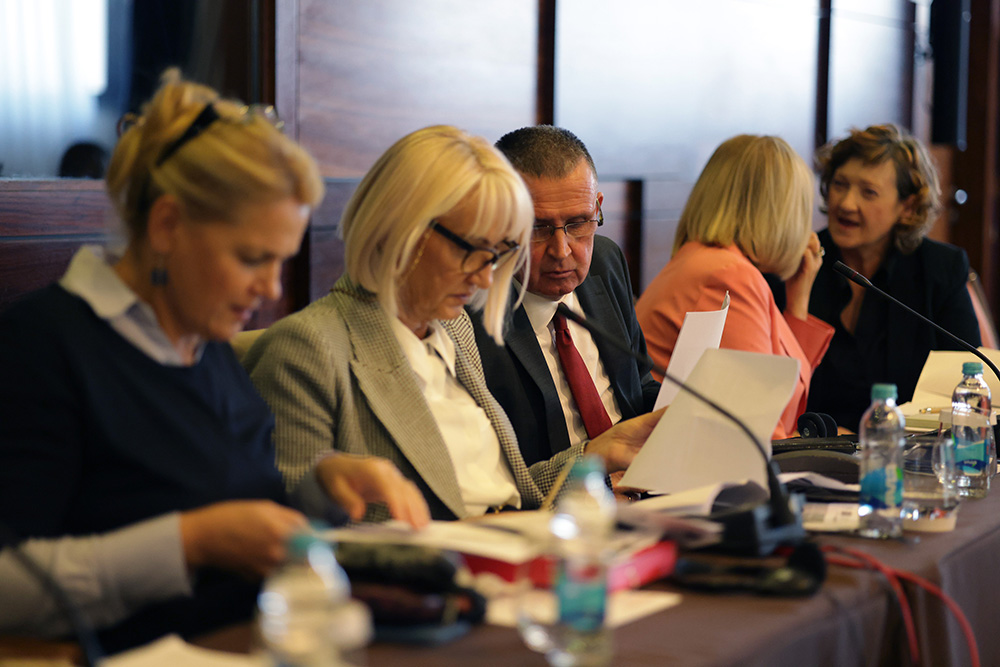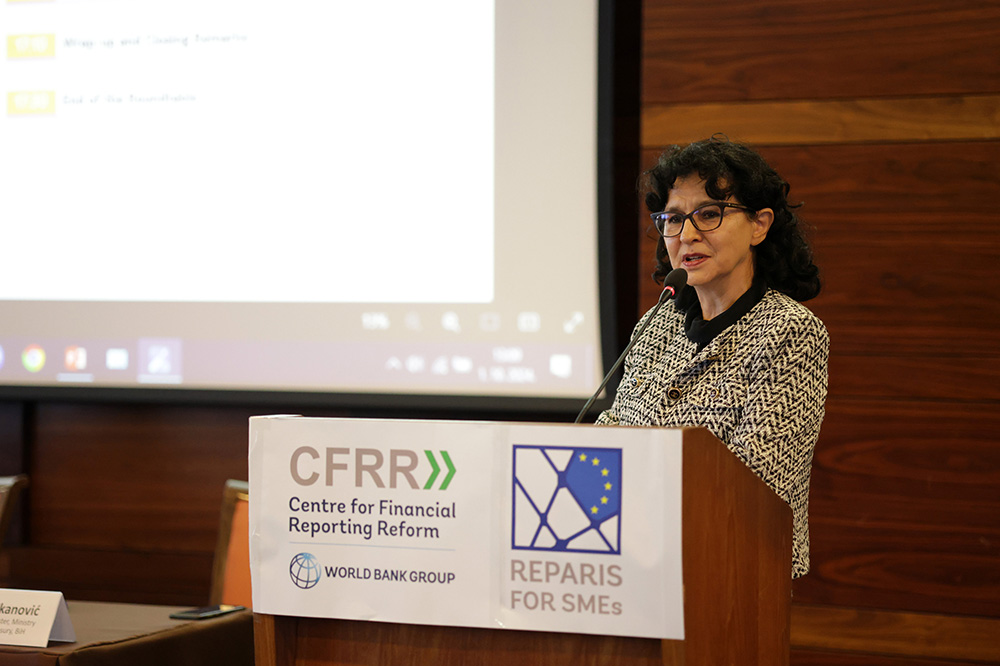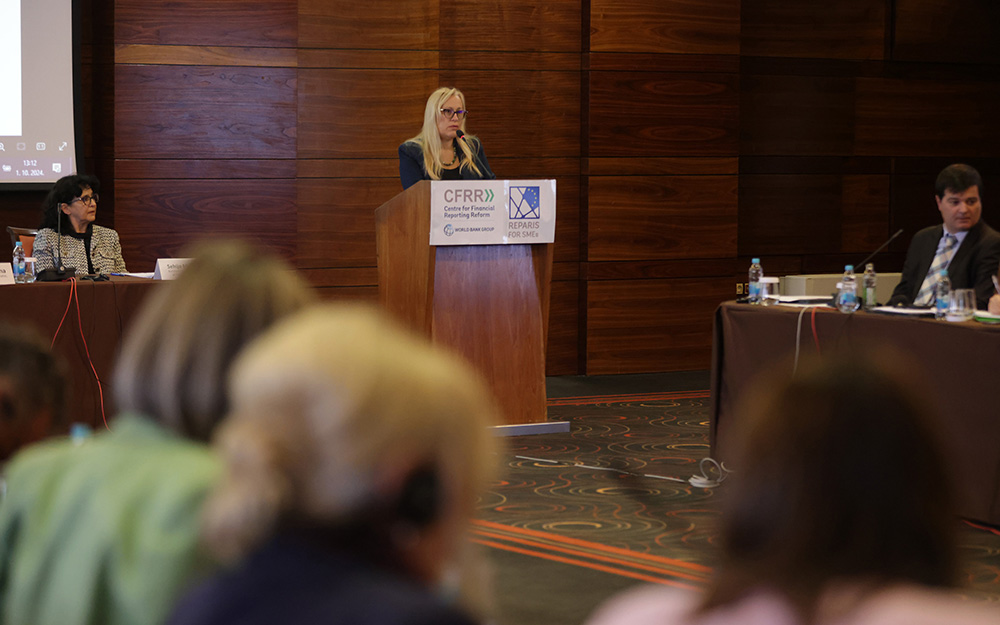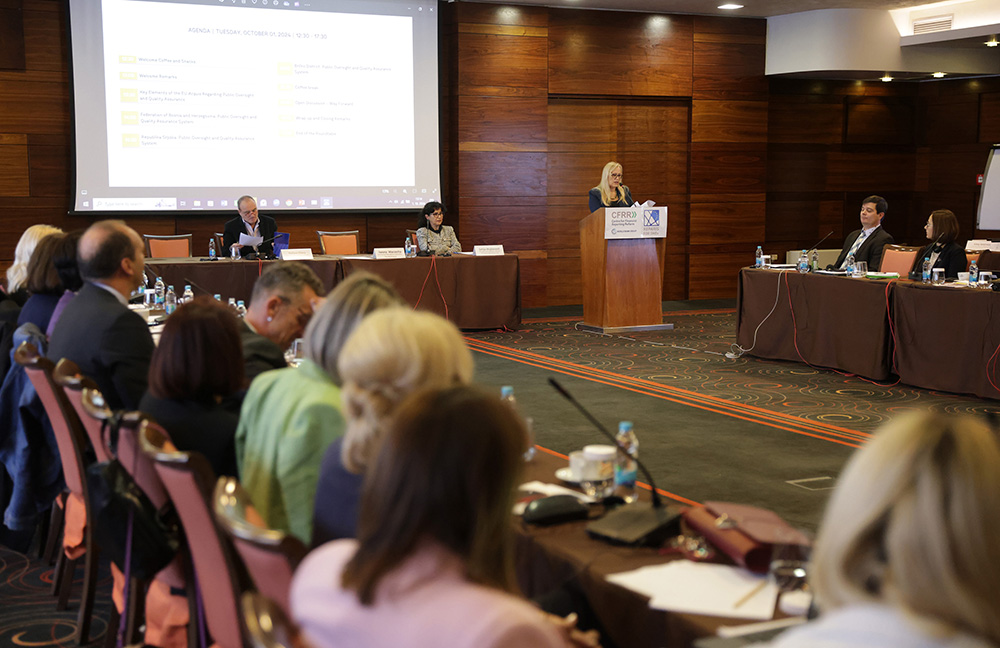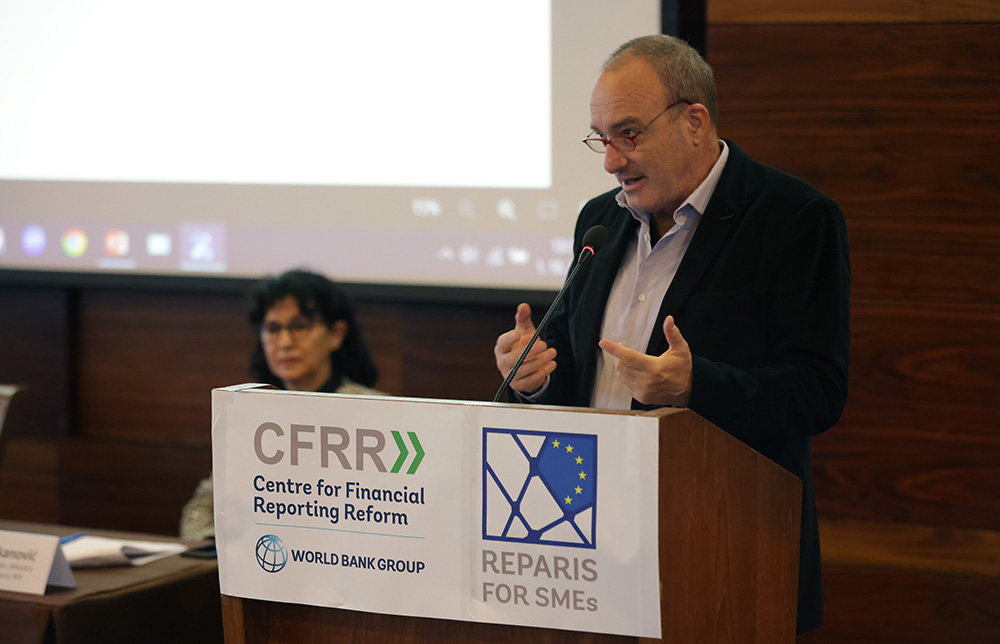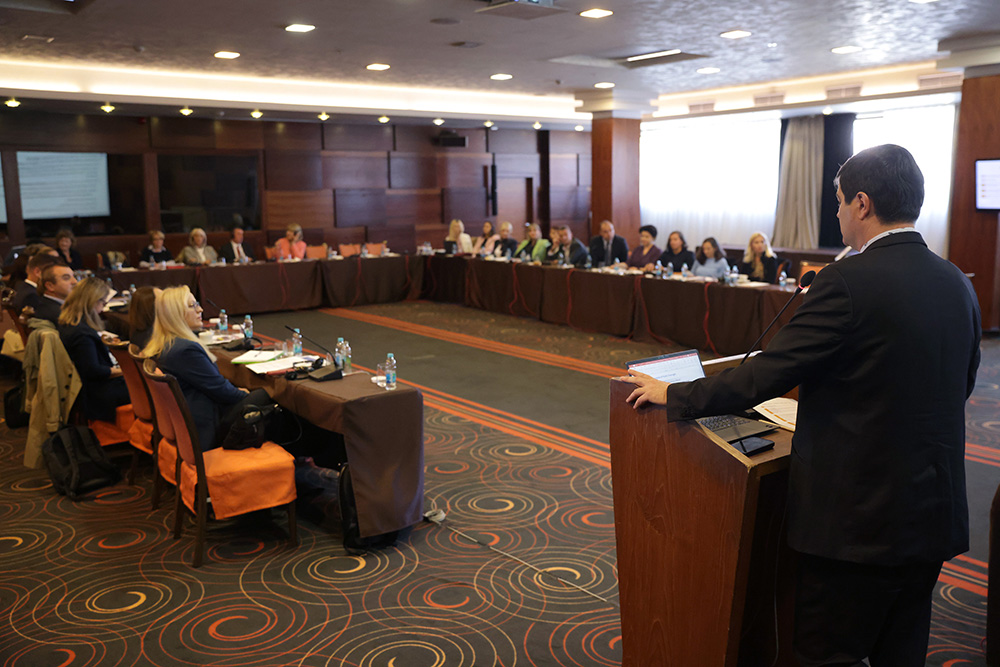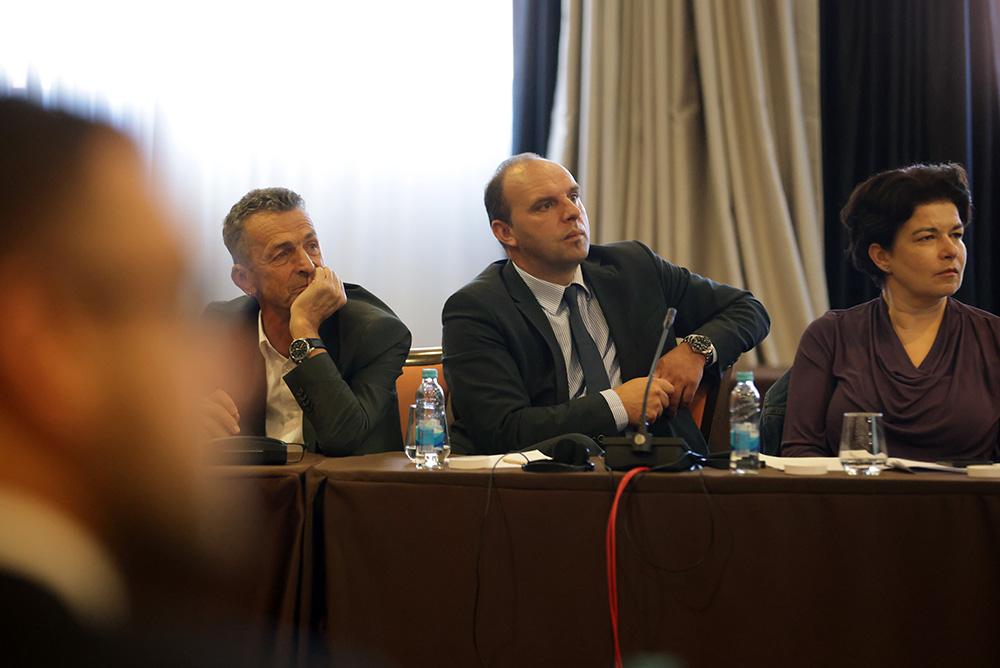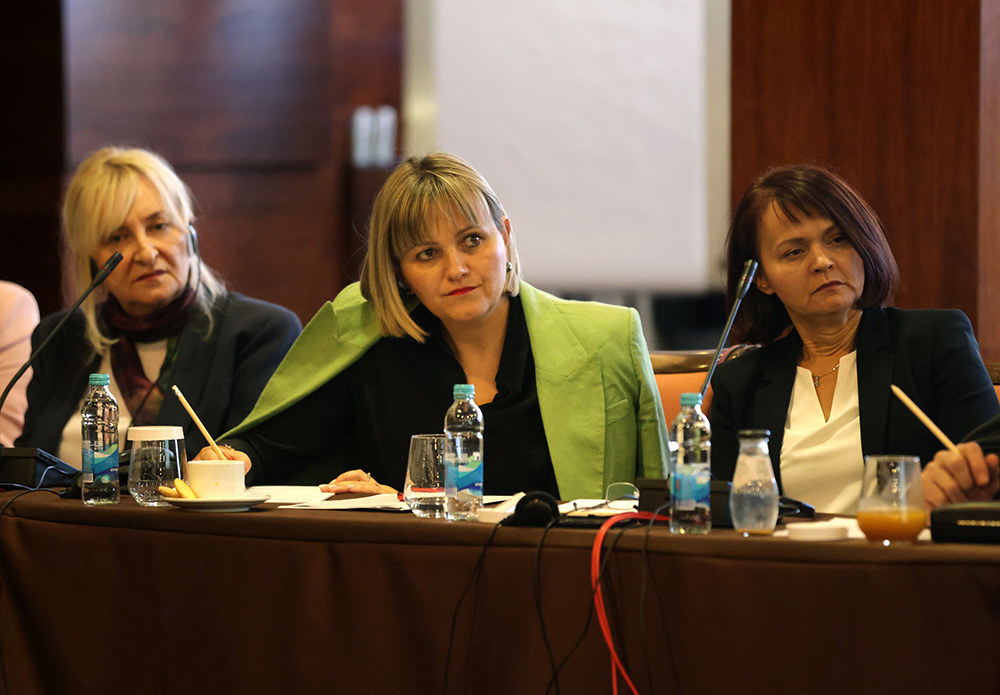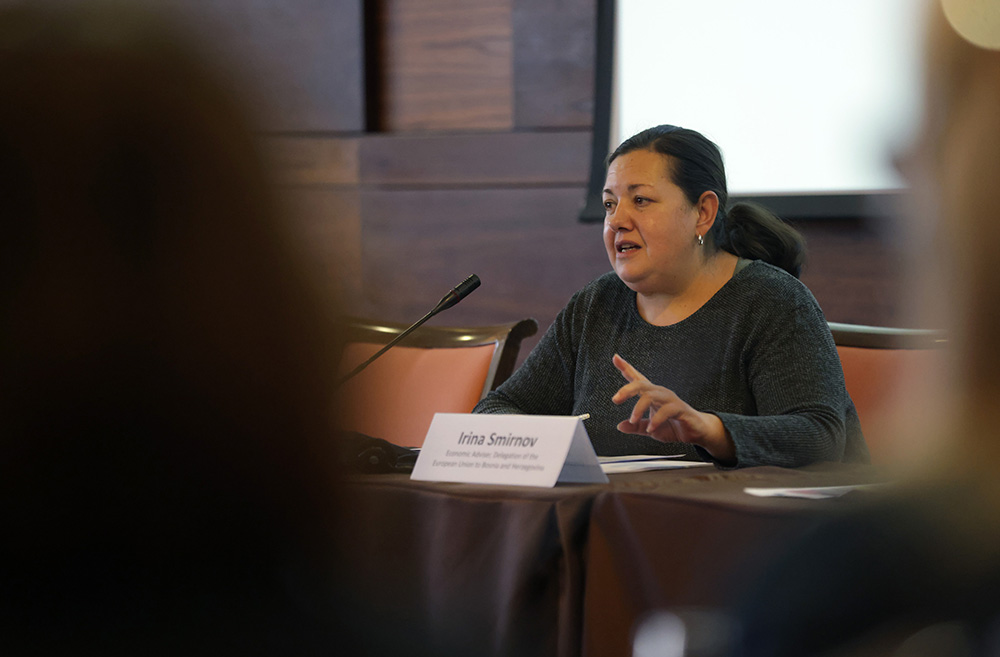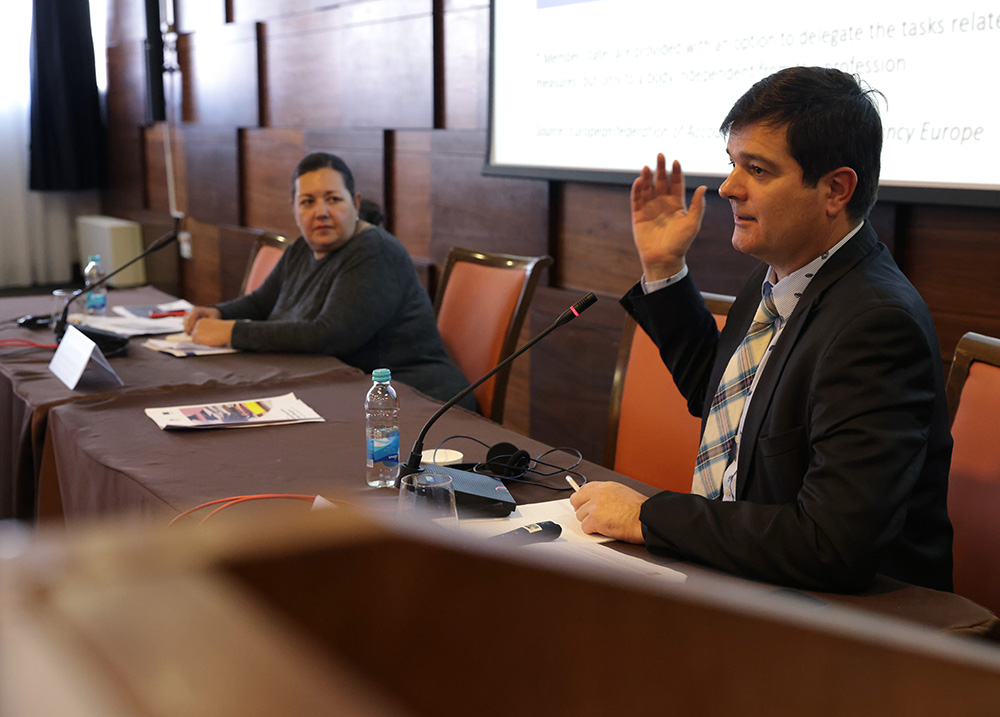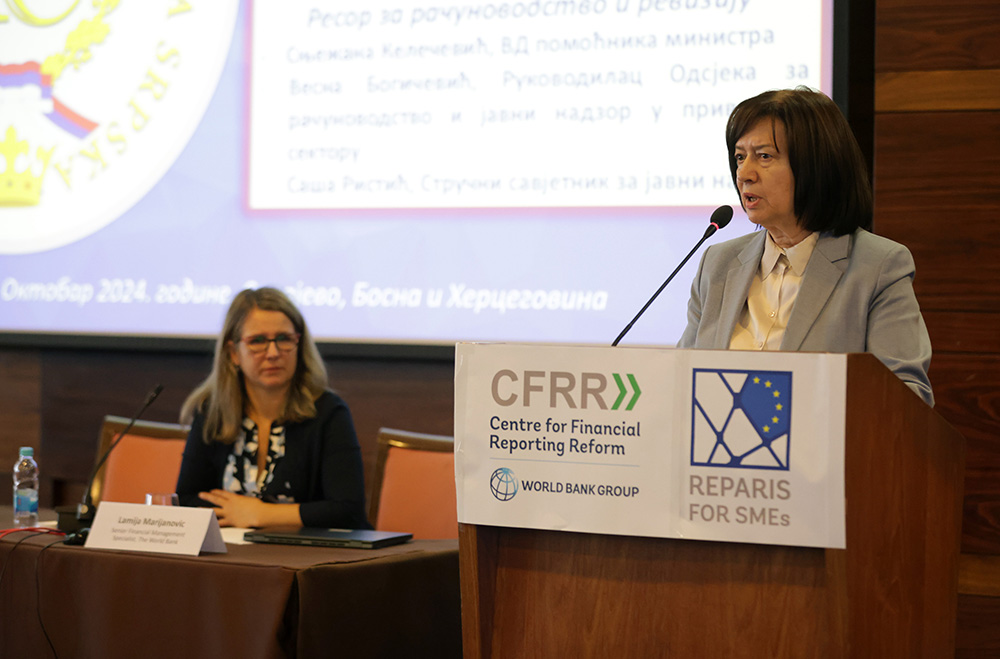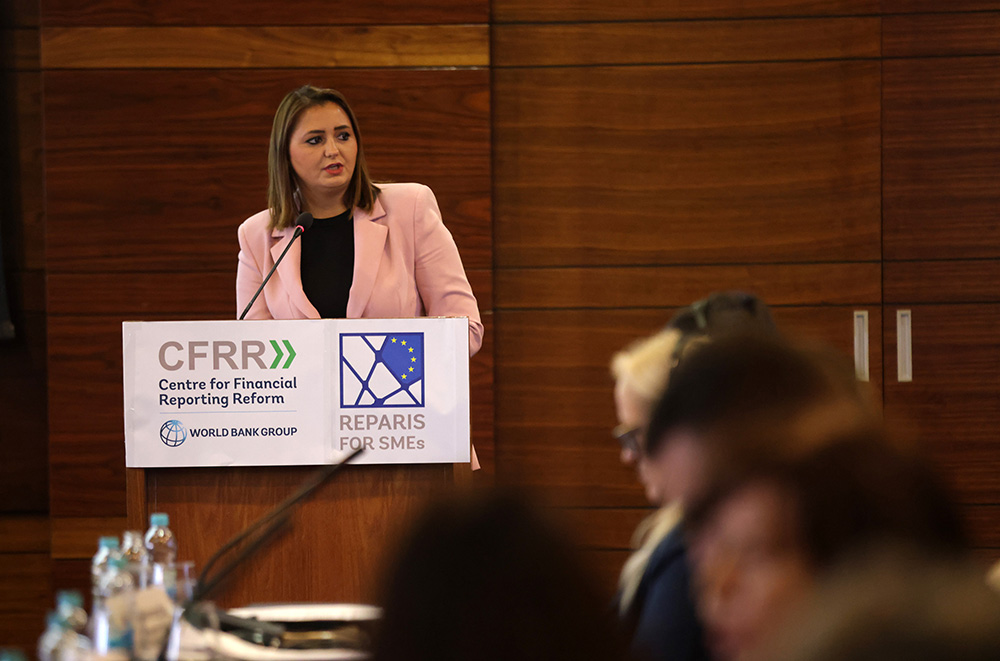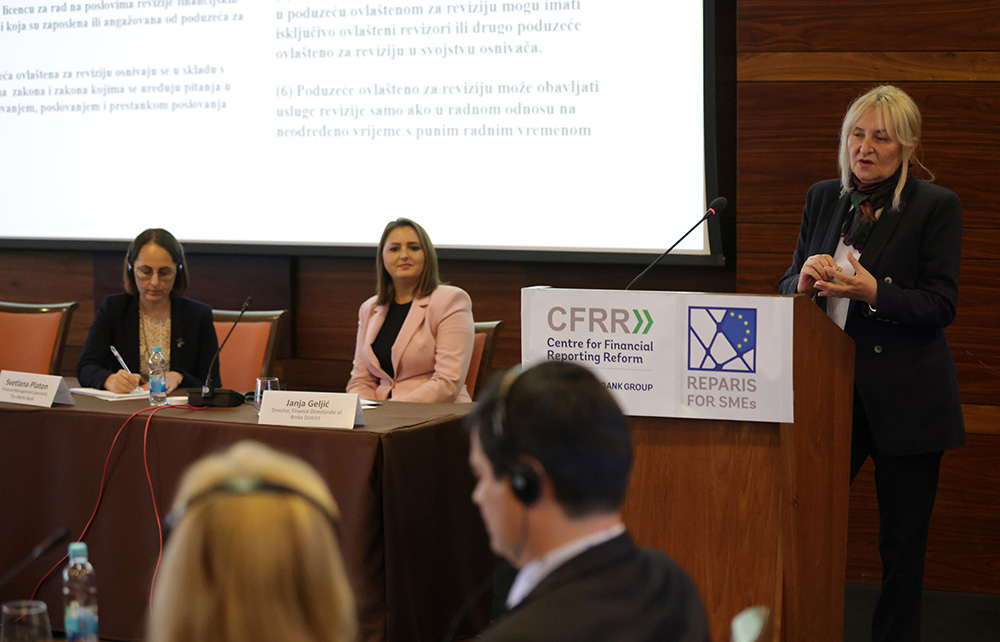Key stakeholders involved in public oversight from Bosnia and Herzegovina convened in Sarajevo on October 1, 2024, to discuss ways to strengthen audit public oversight at both the country and entity levels to ensure better alignment with the European Union (EU) acquis. The event was attended by 30 participants, including representatives from relevant institutions and professional accounting associations from Republika Srpska, the Federation of Bosnia and Herzegovina, Brčko District, as well as the state-level Ministry of Finance and Treasury.
The event was organized by the CFRR team under the Road to Europe Program of Accounting Reform and Institutional Strengthening for Small and Medium Enterprises (REPARIS for SMEs) regional project (funded by the EU).
The primary aim was to explore options for establishing a single supervisory authority with country-wide competence responsible for the oversight of statutory audits and auditors, considering the country’s regulatory and institutional setup, and in accordance with EU acquis requirements. The need for reform is driven by the findings of the European Commission’s 2023 Report on Bosnia and Herzegovina and the need to enhance the effectiveness of public oversight in the country. Further efforts are required to align with the EU acquis on accounting, auditing, and non-financial reporting at all institutional levels.
A joint session by the CFRR team and the EU Delegation to Bosnia and Herzegovina outlined key EU provisions and principles related to public oversight and quality assurance systems. The audience was informed about the rationale for establishing a single supervisory authority with country-wide competence, responsible for overseeing statutory auditors as per EU acquis requirements, and was provided with practical examples from EU countries.
Presentations by the Ministry of Finance, the Public Oversight Committee of the Federation of BiH, and the Finance Directorate of Brčko District outlined the current status of affairs and institutional arrangements regarding applicable accounting and auditing laws in Republika Srpska, the Federation of Bosnia and Herzegovina, and Brčko District respectively. The lack of resources and capacity affects the proper functioning of the competent authorities in charge of public oversight at all institutional levels. For instance, on-site inspections are not performed at all in some cases due to the lack of resources to hire qualified and experienced inspectors.
Presenters and participants shared their views and opinions regarding the establishment of a single supervisory authority with country-wide competence, outlining the pros and cons. While participants acknowledged the need for better approximation to the EU acquis, particularly at the country level, it was noted that some legal constraints and political considerations would need to be addressed alongside policy decisions.
The event concluded with the following agreed next steps:
- Perform a review of all accounting and auditing laws in Bosnia and Herzegovina, supported by detailed transposition tables identifying gaps compared to the EU acquis.
- Based on the above analysis, identify areas that need to be transposed by a state-level law and what should remain at entity level. The existing arrangements for country-wide institutions and functions in other areas/sectors should be considered as examples.
- Continue internal discussions and communication amongst key stakeholders (e.g. via working groups for EU negotiation chapter 6 or other platforms) to work out possible arrangements.
- Organize another consultation event, tentatively in February-March 2025, to discuss findings and identify an informed solution for establishing a single supervisory authority, outlining the relationships, roles, and reporting lines between the country-level supervisory authority and the existing structures.
REPARIS for SMEs will continue to be a valuable source of information and support for the public oversight reform agenda in Bosnia and Herzegovina.
